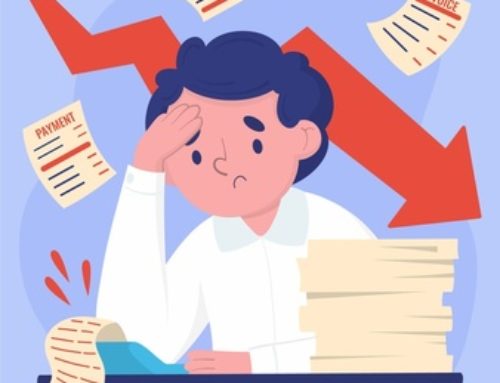How can I get out of debt in Oregon?

People facing debt difficulties and want to get out of it must make a clear choice to do something about it. This decision must be accompanied by a firm determination to see through to the end of the debt reduction process.
Debt reduction is not a one-way street to financial independence. The usual debtor has several options, all of which have advantages and disadvantages. A skilled financial advisor or a credit counselor can advise you on the best course of action, one that is both pleasing to you and your creditor.
- How can I get out of debt when in Salem?
- 5 Primary Debt Relief Options
- What you should know before applying for debt relief
- Speak with an Oregon Bankruptcy Lawyer Today!
5 Primary Debt Relief Options
There are five basic ways to reduce debt. Any of the others will fall into one of the five categories. Federal, state, and local governments worked together to create these. Both will get you out of debt. Still, they will impact your credit report, finances, and history differently. You must approach each carefully before deciding which one works the best for you.
Making Payments on the Monthly Balance
The first of the five debt relief options is the simplest. It involves paying off monthly debts in a systematic manner. Your goal is to pay the required minimum. To succeed, you must aim for a little more. Failing to do so will result in the process taking you a long time to finish.
This option avoids late payment penalties and exorbitant interest rates. If you keep up the excellent work of making payments on time, your credit rating won’t suffer. You will pay off your obligations slowly unless you pay more than the minimum.
Review your budget and debt payment fund to see if you can meet your essential payment obligations. Then pay off high-interest bills with more than the minimum. If the money isn’t enough, look at your spending to see where you could save more. If that doesn’t work, try option two.
Debt Consolidation
The next increasingly popular option is debt settlement. This means hiring a debt settlement or debt reduction firm. The idea is that they will bargain with the creditor on your behalf to reduce your debt. As a rule, it’s a percentage of your initial If you pay off that debt responsibly, the court will forgive the rest of the debt.
The process starts with a financial assessment. After the negotiator determines your affordability, you must deposit funds at an insured financial institution. You will stop paying the creditor. When the creditor discovers that there’s a halt in your expected payments and sues you, the negotiator may offer a debt settlement plan.
Expect a significant impact on your credit report if you enter into a debt settlement agreement. It will pick up quickly once you have paid your bills.
Hiring the best negotiator as your advocate is crucial. While you can do it yourself, a debt relief professional’s expertise and negotiation skills will help you achieve more. Additionally, when you choose a long-standing company, you may benefit from their relationships with creditors and collection agencies. It will help you get a reasonable debt settlement.
To defraud creditors, a professional debt relief firm will not defend debtors who cannot pay the total amount due. You must be genuinely unable to make the minimum payment if you want to find a reputable debt settlement company.
Loans for Debt Consolidation
Debt consolidation is another option for debt relief. This entails consolidating all of your loans into a single loan for which you only pay interest on one. The goal here is to pay off the high-interest bills while just making one payment every month. The home equity loan is the most common type of debt consolidation loan. This means you’ll be selling your house.
The advantage of this debt relief option is that it simplifies debt management because you only need to pay attention to one payment. You should only choose this option if the monthly costs are less than the sum of the first debt relief option outlined before. Otherwise, you’ll be deluding yourself with this alternative. Another factor to consider is your credit score. This will hurt your credit file as well. It will, however, quickly pick up when you have cleared your bills and adequately compensated for them promptly.
It is also critical to keep yourself in check because, once again, your home is in jeopardy if you are unable to pay your debt. Stick to your budget and the payment terms of the new loan you’ll be taking out.
Debt Administration
Debt management, often known as credit counseling, is the fourth debt relief method. This entails registering in a service that offers debt counseling. It works on the same principle as a debt settlement, except that a debt manager manages the money. They will combine your debt and pay off your creditors for your sake, using funds from the account that you will be supporting. They will also assist you in negotiating with your creditors to reduce your interest rate, monthly payments, and outstanding sum. This will also impact your credit record, so don’t be surprised if your score drops.
The difference between them and a debt settlement firm is that they will also supply you with counseling services. They will assist in removing the source of the problem — your poor spending habits.
Bankruptcy
Bankruptcy is the last resort for debtors, creditors, and financial professionals. This is when you are declared bankrupt and unable to pay your debts. There is a bankruptcy court-involved, and your creditors may steal your assets. Even so, there is no guarantee that you will be able to repay your creditors fully.
This decision will impact your credit report, score, and history. If you need financial help, your chances are slim.
It’s also not a guarantee that you won’t pay your debts. The bankruptcy court will decide if you qualify for Chapter 7 or Chapter 13. In Chapter 7, the court will pardon the entire debt, but in Chapter 13, you will have to repay a portion of your debts through a debt repayment plan..
When should you seek debt relief?
Consider bankruptcy, debt management, or debt settlement if any of the following are true:
- Even if you decrease your spending drastically, you have little chance of settling an outstanding debt (credit cards, medical bills, personal loans) within five years.
- Your entire outstanding unsecured debt is equal to half or more of your taxable pay.
On the other hand, consider a do-it-yourself plan if you believe you can repay your unsecured obligations in five years or less. This may entail a mixture of debt consolidation, creditor appeals, and stricter budgeting.
What you should not do
A health crisis, unemployment, or a natural disaster can cause crushing debt to strike with devastating speed. Or maybe it happened gradually, and now creditors and collection agencies are pressuring you to pay, and you simply can’t.
Here are some things not to do if you’re feeling overwhelmed by debt:
- Paying a secured loan (such as a car payment) late to pay an unsecured debt is not a good idea (like a hospital bill or credit card). You may lose the collateral used to secure the debt (your car).
Borrowing against your home’s equity is not a good idea. You are placing your house at risk of foreclosure, and you may be converting unsecured debt that bankruptcy could discharge into secured, non-dischargeable debt
- Don’t take money out of your retirement funds to pay off unsecured debt. This is committing financial suicide.
- Consider borrowing money from your employer’s retirement plan as well. If you lose your employment, the loans may become unintended withdrawals, resulting in a tax burden, which you do not want.
Don’t make judgments based on which collectors are putting the greatest pressure on you; doing so may lead to behaviors that aren’t in your best interests. Instead, spend time researching your options and selecting the best one for your scenario.
What you should know before applying for debt relief.
If you’re having trouble repaying your debts, a debt relief plan might appear to be your only option. Although it can assist in making repayment more reasonable, you should be aware of the potential disadvantages before embarking upon debt relief as a resolution.
Scams
Credit counseling, debt settlement, and debt forgiveness are risky options.
Avoid paying upfront, promising to settle your debts for a fraction of what you owe, refusing to send free information about its services, or promising to stop all debt collection calls. Lawsuits are red flags for a possible scam.
It’s vital to do your homework before working with any debt relief company. Check the legitimacy of any service with the state attorney general’s office and the BBB. Verify an organization’s accreditation with the National Foundation for Credit Counseling.
Interest Rates
Compare the new loan’s interest rate to your current accounts if you’re considering debt consolidation. Refinance your existing loan to save money.
Repaying loans reduces monthly payments. Lower monthly payments mean more interest paid over the loan’s life.
Compare rates and terms from several lenders before deciding. If you use a balance transfer card, make sure you qualify for the 0% APR.
When transferring balances, pay off the balance before the promotional period ends. Unpaid balances usually have a variable APR. Credit card APR ranges are specified in the cardholder agreement for comparison.
So, if the balance transfer card’s variable APR is higher than your current rate, figure out how much you’ll save.
Fees
No matter the debt relief service you choose, it’s essential to comprehend the fees involved. Debt settlement firms usually charge a percentage of the entire amount owed, ranging from 15% to 25%. For example, if you owe $10,000 and the corporation charges a 20% fee, the service charge would be $2,000.
Many credit counseling firms provide free services, but if you join a debt management plan, you may be charged a set-up cost as well as a monthly fee. On debt consolidation loans, some creditors may charge processing or additional costs.
Implications for taxation
If you or a third party speak with your lenders and decide to settle your debt much less than what you have due, the difference is likely to be deemed taxable income. You may also be obligated to pay on it once your debts have been satisfied. Make a budget for it while you weigh your options.
Duration of the program
Debt relief solutions necessitate regular, on-time monthly installments — typically for years — and many people fail to complete the programs. Make sure you can commit toward any debt relief program before you begin. Otherwise, you’ll still be in debt and may not be able to get the new beginning you’re hoping for.
How does debt consolidation affect your credit?
To consolidate your debt, you might seek a debt consolidation loan or balance transfer offer. You can also negotiate a lower payment or settle your debt for less than you owe.
Note that if you continue to your debt repayment plan, any bad influence on your credit will likely dissipate over time. Your credit ratings may increase if you lower your debt and pay on time.
The alternative to debt relief, bankruptcy, might be confusing. Even though bankruptcy is a legal option that may help you discharge some of your debts, its effects on your credit might endure up to ten years.
Speak with an Oregon Bankruptcy Lawyer Today!
Filing for bankruptcy is a legal reason for individuals to get out from under debt and regain financial freedom. A reliable bankruptcy attorney in Oregon can assist you in understanding how bankruptcy works and how to file a bankruptcy petition.
Whether you’re in Portland, Salem, or Medford, our Northwest Debt Relief Law Firm bankruptcy attorneys have experience dealing with bankruptcy files and can assist you. Call us at (503) 487-8973, (971) 233-4543, or (541) 262-6732 for a free consultation now!









